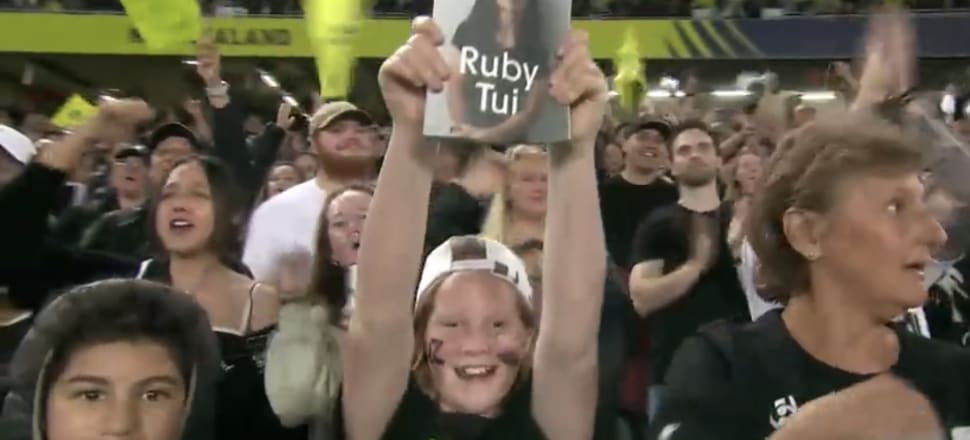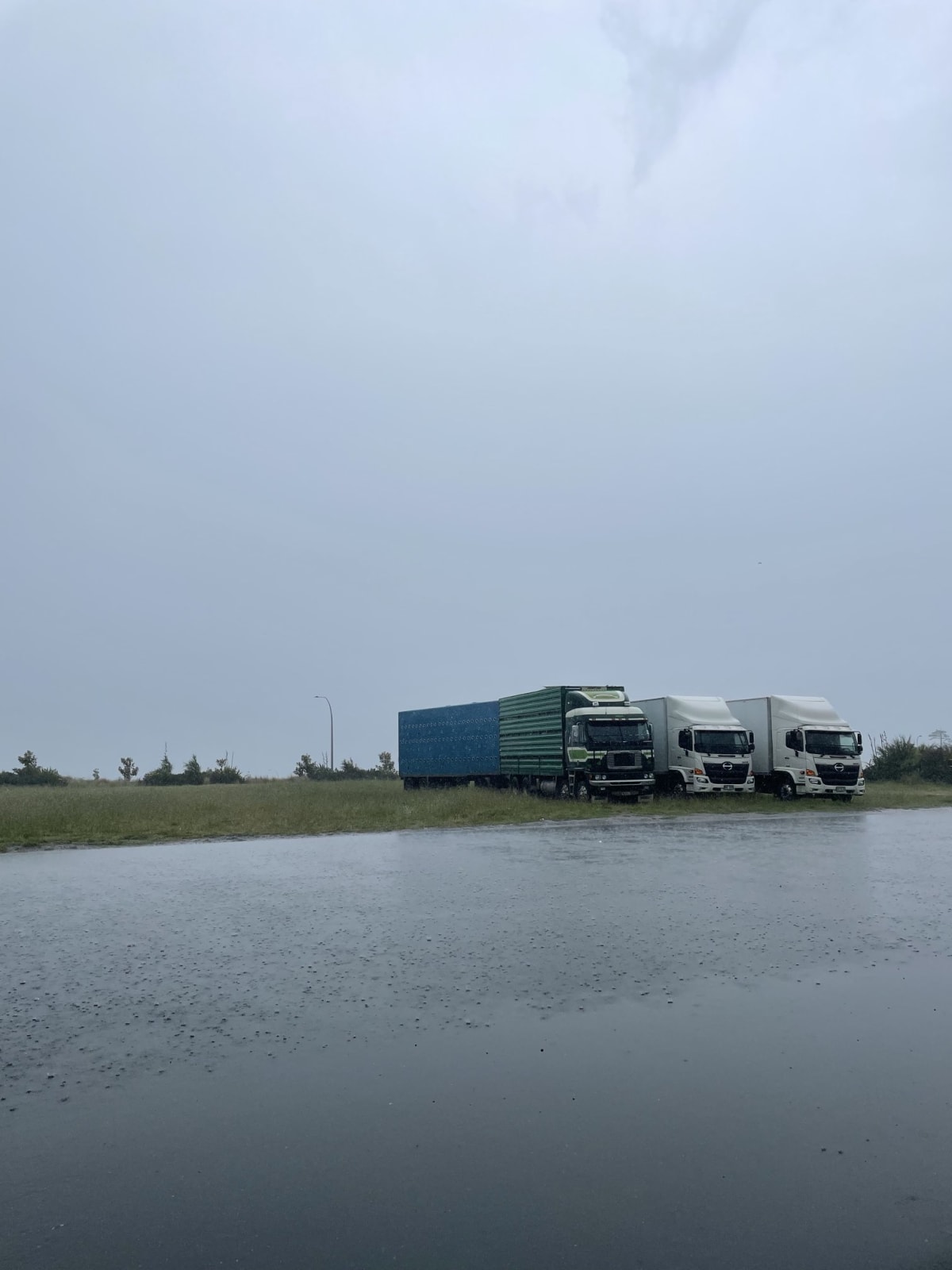
ReadingRoom literary editor Steve Braunias celebrates the best things in New Zealand writing this year
BEST BOOK
Grand, by Noelle McCarthy. Just as the best book of last year was a memoir about a woman's experience as a daughter (The Mirror Book by Charlotte Grimshaw), so too was the best book of 2022. Neither were misery memoirs - the authors are too funny for that, and too wise to merely wallow - but both were stories of survival. McCarthy survived a flamboyant and troubled mother who drank too much, and survived herself when she became a flamboyant and troubled party girl who drank too much. One of the best sections of Grand is when she writes about her season in hell: her last year of drinking too much and her first year of not drinking. I remember running into her around that time; she was ghost-like on Vincent St in downtown Auckland, as pale as a vampire, bloodless. She evokes that time with a light and sure touch, just as she does throughout the book. The prose is wonderful and the narrative is brilliantly crafted. Only the usual idiocy at the Ockham book awards will prevent Grand from winning the nonfiction prize in 2023, just as it did this year and thwarted The Mirror Book; but a work of art lasts forever.
BEST BOOK INEXPLICABLY MISSING FROM THE READINGROOM TOP 10 FICTION LIST
How to Loiter in a Turf War by Coco Solid. Speaking of the usual idiocy, why didn't I think to include this debut novel – clearly one of the most exciting books of the year, and almost constantly on the bestseller list since it was published in May – in the ReadingRoom top 10 novels of 2022, published last week? And why no Eddy, Eddy by Kate de Goldi, or Arms & Legs by Chloe Lane, or Peninsula by Sharron Came, or short story collections by Vincent O'Sullivan, Emma Neale, and Anthony Lapwood, or The Fish by Lloyd Jones, or Slow Down, You’re Here by Brannavan Gnanalingam… Each of these titles could very well make the longlist and then shortlist of the only best-of that matters: the Ockhams. How to Loiter in a Turf War has the verve and originality to go all the way and win the 2023 Jann Medlicott Acorn fiction prize.
BEST PUBLISHER
Penguin. Well, obviously Penguin, who I named last week as publisher of the best fiction of 2022 (Return to Harioka Bay by Owen Marshall), best nonfiction of 2022 (Grand by Noelle McCarthy) and best illustrated book of 2022 (Toi Tū Toi Ora: Contemporary Māori Art). They simply had an outstanding year, outpacing Te Herenga Waka University Press as New Zealand's smartest publisher of fiction (as well as Owen Marshall, there were novels by Coco Solid, Dominic Hoey, and Laurence Fearnley), and were also attuned to commercial success (cookbooks, Hinemoa Elder) – really, Penguin have become a sort of quality version of Allen & Unwin. "Still the ones to catch," as HarperCollins publisher Alex Hedley has described A & U, the market leaders in New Zealand publishing; at one point this year they had seven titles in the top 10 nonfiction bestseller list. Seven! They showed particular foresight in publishing Straight Up by Ruby Tui, who went on to become a national hero and catapulted the book to number one. A & U also showed initiative in creating a commercial fiction prize. But while they were busy setting it up, Bateman just went ahead and did it, publishing the year's biggest selling commercial novel, Kāwai by Monty Soutar. It was the cherry on top for the newly revitalised Bateman.
HarperCollins, too, had a vibrant year, with titles such as Blue Blood by Andrea Vance and wilderness yarn The Boy from Gorge River. Huia picked up the fiction award at the Ockhams for Whiti Hereaka's Kurangaituku and then published a candidate for next year, the powerful short story collection Kōhine by Colleen Maria Lenihan. So, yeah, Penguin were better than the rest, but the rest (Allen & Unwin, Bateman, HarperCollins, Huia; Massey University Press and Auckland University Press produced the best range of illustrated books, and Te Herenga Waka University Press owned the best new poetry) all had stellar years.
BEST LITERARY FESTIVAL
Marlborough. A strange place, Blenheim; it doesn't seem to have a lot in its favour, a thin, dreary river drags its wet feet through town, the only people you see after dark are RSE workers bored out of their minds with nothing to do, but for sheer hospitality and warmth it leaves every other literary festival behind. I love it there and they always treat writers, and readers, with respect. Plus Blenheim has an architectural marvel: the modernist house designed by Paul Hanrahan, who illustrated the iconic LP cover for Loxene Golden Disc 1970 Special (as featured in my book Cover Story.)
BEST INTERVIEW
Sam Duckor-Jones by Eva Corlett, the Guardian. The incredible pimping of Gloria, an 83-year-old church in Greymouth, made worldwide news when Eva Corlett was first on the scene of Sam Duckor-Jones's project to turn it into a "queer beacon". He gave great interview. This: “I put play at the very top of everything that is important in the world.” This: "I really like sitting by myself crocheting but wearing, you know, a pink silk gown with some mascara, listening to Judy [Garland].” And, presciently, this: "I wanted Gloria to belong to the community, because I thought, at some point someone will do something stupid, like tag it or burn it down, and I want the community to be as outraged as well." In June, a 20-year-old man pleaded guilty to an anti-Semitic and homophobic attack on Gloria.
BEST NON-INTERVIEW
Kim Hill with Joyce Carol Oates, Radio New Zealand. Was it a trainwreck? No, not exactly. Was it tense, chilling, hostile, perhaps actually a completely crazed encounter? Well, something like that. Was it revealing? Definitely, of both.
BEST ESSAY
No award. BEST EXTRACT
"Kitten" by Olive Nuttall, Turbine. This year's Adam Prize at the IIML went to Olive Nuttall, for the manuscript of her novel Kitten; an extract appears in the latest issue of online journal Turbine. It's fantastic. Please read, for a preview of one of the best novels of 2023/2024.
BEST REVIEWER
Rachael King. Philip Matthews, named reviewer of the year at the Voyagers for his book reviews at ReadingRoom, was unavailable in 2022; in his absence, I turned to Rachael King, and I fully expect her to win that prize in 2023. When she reads a book, she really reads a book. Her reviews are fully engaged, a deep immersion, and she can bust out prose like no other critic. Rachael, on Grand by Noelle McCarthy: "You feel like you’re witnessing a work in progress – or at least a working out in progress. Many memoirs are probably just that – a puzzle of bones to arrange to read for signs, to make sense of a life, of any number of relationships that make up that life." Woah. "A puzzle of bones"!
There were also excellent reviews by Paula Morris in the Academy of New Zealand Literature of Lost Possessions by Keri Hulme ("Are the ‘lost possessions’ these pages or are they the Pacific islands? Is the empire striking back against the colonial academy?"), Hester Ullyart in takahē of devils trumpet by Tracey Slaughter ("31 stories plunge needle deep into the private bloodstream of pain, obsession, grief, disappointment and shame that Slaughter’s characters pulse, delivered with the cool air of sinking a beer at the end of a long day, flicking ash as the revelations reel"), and Philip Temple's tart assessment in Landfall of Return to Harioka Bay by Owen Marshall: "Annoying."
BEST SHORT STORY
"All Gone" by Kirsty Gunn, Landfall. Another very, very good year for the New Zealand short story included "1986" by Dominic Hoey, published right at the end of last year as the winner of the 2021 Sunday Star-Times short story award, with this irresistible opening: "It was the middle of summer and Sione kept telling everyone I had Aids. I didn’t know what that meant, but I knew it was bad. Sione had a scar down the middle of his face, like when you put a piece of cake in the fridge and the icing cracks. His Dad hit him with a spade. But then his Dad turned up dead in Western Springs lake."
Dear old ReadingRoom maintained its weekly short story series. Quite a few shared a similar theme: a man does or says something terrible to a woman, and is found out. There were also original ideas, and a range of characters. The best were, I think, "My Octopus Teacher" by Fergus Porteous, "Polack is warming" by Michael Morrissey, "The fylgja" by Emma Neale, "Young Boys Take a Short Walk Through the Kingdom of Heaven" by Kirsten McDougall, and, best of all, equally, "Fourth Wall" by Year 13 student (!) Shima Jack and "First Home Buyers" by James Pasley.
But the best story of the year was in the latest issue of Landfall, by Kirsty Gunn, a New Zealand writer living in Scotland. Her opening leaped out at the reader: "She put her hands in deep among the baby things to where the guns were. There, beneath the sleepsuits, the tiny cotton t-shirts and the laundered nappies fresh from the washing service, she could feel them: the smooth polished barrels of the Sig Sauers, the hook of the trigger on the P238 with its blunt snout and the round opening where the bullets would come out."
BEST OLD WRITER
Renée, 93. "I know I’m lucky to still have a brain," she told Sarah Catherall in a recent Stuff interview. It’s quite a good brain. In July, ReadingRoom published her short story "Dancing with Michael Joseph", and in November, Cuba Press published her latest crime novel Blood Matters. Nadine Rubin Nathan at High Spot Literary has sold world English-language rights to both Blood Matters and Renée's earlier crime novel Wild Card to UK independent Joffe Books. Right-ho. How's your 93rd year shaping up?
BEST YOUNG WRITER
Shima Jack, 18. The Year 13 student at Logan Park High School in Dunedin won the Sargeson Prize secondary school division short story award in October - a prize she won last year, too. Judges selected her work out of 165 entries. She was asked by the Otago Daily Times how it felt. "Very weird," she said. Even weirder is that her winning story, "Fourth Wall" , was every bit as good and possibly better than the stories which won the open division. Radio New Zealand reported, "Despite still being in high school, this year Jack took an English paper and a Zoology paper at Otago University. She also co-runs the Dunedin Youth Writer’s Association with two other students from her school. Earlier this year the group released its first issue of what will become a monthly writing anthology called Minor Gospel." Uh-huh. How high-achieving in arts and science was your Year 13?
BEST RUMOUR
That this year's Booker Prize winner Shehan Karunatilaka, author of The Seven Moons of Maali Almeida, would be awarded the Randell Cottage writers residency in Thorndon. He wasn't.
BEST NEW CLOTHING LINE IN COLLABORATION WITH A POET
Tayi Tibble, Huffer. This sort of thing never happened to Allen Curnow.

BEST LIVE PERFORMER
Freya Daly Sadgrove. The Wellington poet created and stages the extraordinary Show Ponies live poetry extravaganza, billed as "a collective of hot hot firestarter poets", performing at Verb, Featherston, and, in May, Brisbane; and the most extraordinary of all her line-ups is Sadgrove herself, mesmerising and spectacular, loud and q u i e t, in possession of the most astonishing vocal mannerisms in New Zealand this side of Kim Hill.
BEST POEM
"The Boy at the Dump", by Vincent O'Sullivan, Landfall 243.
A boy who lives on a rubbish dump
in Venezuela, a boy of seven or eight,
too busy scavenging to think of school,
grins at the camera, happy, he says,
happy because that day he had found
an untouched orange. He can share it
with his sister. The sun seems a different
colour. Then the clip is over. The dump
is the size of a village, it expands each day.
You hear it moving after dark. It is hundreds
of boys in their dreaming. It is oranges brought home.
AND FINALLY: THE BEST PHOTO TAKEN BY AN AUTHOR
Alice Tawhai, author of Aljce in Therapy Land, is without doubt the premier New Zealand writer who takes awesome photos and posts them on the Twitter machine. A certain kind of tone pervades all of her photos. There's a loneliness, a beauty, a strangeness – I love this image of three beasts gathered to drink at a watering hole.

Tomorrow: Patrick Evans on Return to Harioka Bay by Owen Marshall, named in ReadingRoom as the best work of fiction in 2022.







